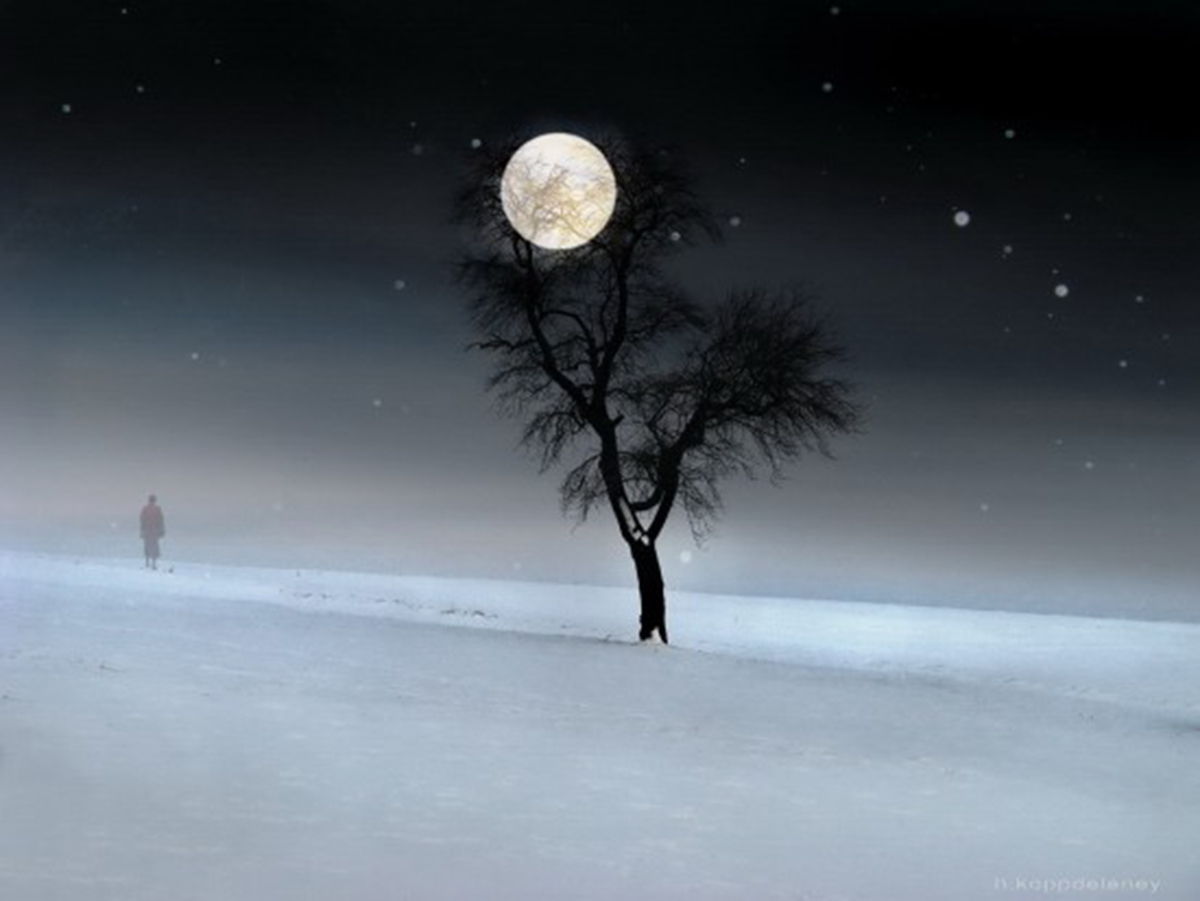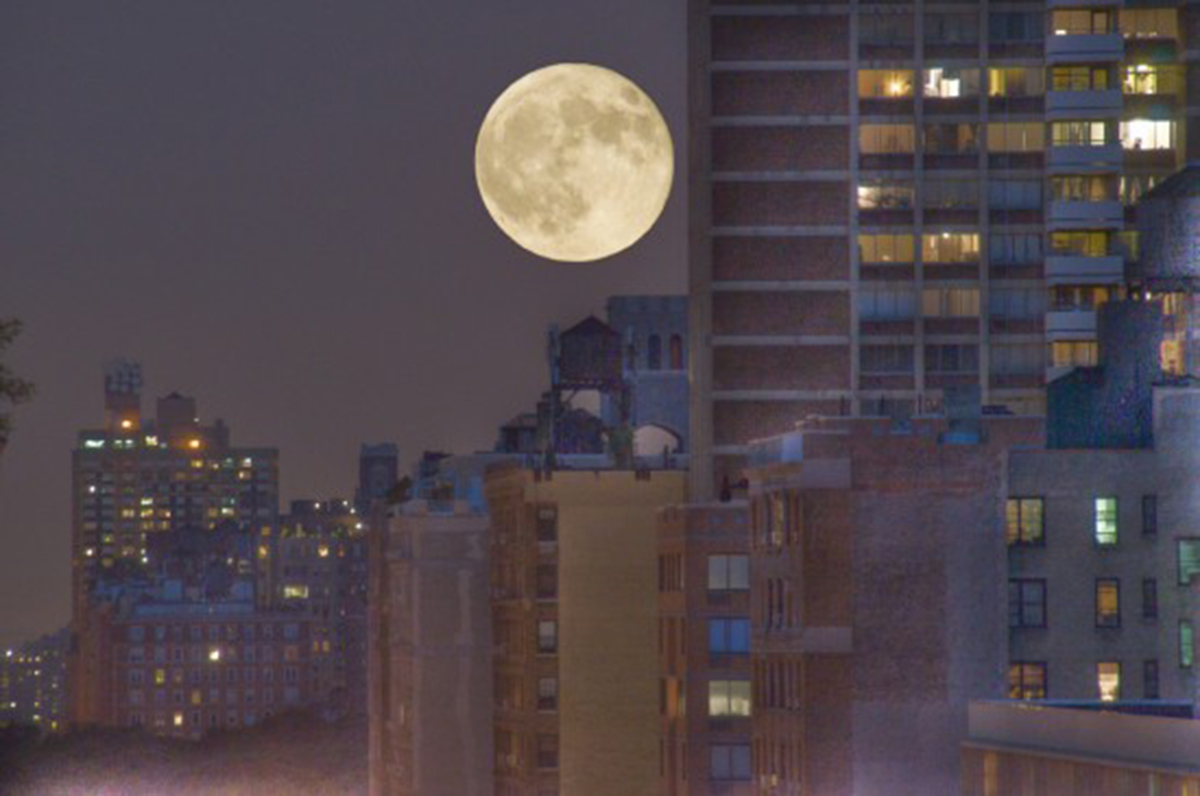The nights of full moon are surrounded by a great deal of folklore and superstitions. Full moon, the stories go, is the time when werewolves come to life, vampires hunt for innocent victims, and everyone should think twice about dwelling outside the safety of a well protected house. Legends aside, the full moon is popularly associated with anxiety, disturbed sleep, and even increased levels of violence among people. The latter was taken very seriously by the authorities in the British city of Brighton, where the local police force was ordered to put more officers on the streets on the nights of the full moon.

Effects of full moon: how to separate myths and reality?
It is not easy, however, to scientifically prove whether our fascination with the full moon is based on real solid facts, or just comes from watching too many horror movies. Even in that case, of course, the "placebo effect" is very real, and our superstitions, which are rooted in nothing but our imagination, can certainly impact our health and behavior.
There can be no doubt that the moon influences our physiology, however. After all, women’s menstrual cycle seems to be bound to the phases of the moon, even though we still don’t have any clear explanations as to why. In the wild, in nature, the time of the full moon means that the nights are brightly illuminated, which makes it easier to both hunt and be hunted. Our prehistoric ancestors could not have been able to avoid this effect, and it is reasonable to assume that some aspects of our behavior and biology still reflect the experience of that distant past.
Fertility and birth rates do not correlate with the lunar cycle
The theories surrounding the effects of lunar cycle on human behavior were always popular. A specific term – the Transylvanian effect – was coined to describe the effects of the full moon on humans. As a matter of fact, many of these theories were tested scientifically, and in the majority of cases no connection between the phases of the moon and particular aspects of behavior was ever found.
Although the length of the menstrual period is roughly the same as the duration of the lunar cycle, the stages of the menstrual cycle are not synchronized with the phases of the moon. The same applies to the birth rate which was speculated to be higher during the full moon: none of the recent studies have found any connections here. The lack of evidences makes skeptics think that the same length for both lunar and menstrual cycles is nothing more than a coincidence, which our brains cause us to see connections that don't exist.
Read More: Panic attacks and anxiety
Full moon and human behavior
British police has made headlines in 2007 by announcing that their research and statistics have shown a significant rise in the rate of violent and anti-social behavior during the full moon nights. Police officers argued that during these nights people seem to behave more strangely and become more argumentative.
No proper scientific research has supported Scotland Yard’s point of view so far, but there were a number of reports showing that the level of aggression and violence tends to be higher during the full moon among the people with mental disorders. Later analysis has demonstrated that this is indeed correct for schizophrenics, but no physiological explanation for this observation was found so far.
Full Moon Can Affect The Quality Of Sleep And Incidence Of Epileptic Seizures
Although many theories about the full moon's effects on the human body and behavior were disproved, at least two phenomena were scientifically shown to correlate with the lunar cycle.

Swiss scientists who studied the human sleep cycle have shown that on the nighs of the full moon the electroencephalogram (EEG) delta activity, the indicator of deep sleep, decreases by 30 percent. The total sleep duration of the study participants on such nights decreased by 20 minutes, and on average it took them 5 minutes longer to fall asleep on those brighter nights. The changes of these parameters point to a decreased quality of sleep. None of the participants in this study knew what were the objectives of the experiments, and in general they were not even aware of the current phase of the moon.
A decreased quality of sleep is known to affect various systems of the body, and chronic problems with sleep may result in serious health complications. Therefore, indirectly, the full moon can indeed affect our health.
Another interesting observation was reported from the statistical study investigating the occurrence and frequency of seizures in people suffering from epilepsy. It was found that the frequency of seizures negatively correlates with the brightness of the moon. However, this effect is not exactly moon-related: when the general brightness of the nights was taken into account (i.e. the days when the skies were clear and the days when the skies were cast by the clouds), the correlation with the moon cycle was not so obvious any longer. It seems that the incidence of seizures is influenced by the level of nocturnal luminance rather than by the moon phase itself.
Read More: Epilepsy: Seizures when sleeping
Psychology at work?
Although some effects of the full moon were confirmed scientifically, the overwhelming majority of them seem to be nothing more than modern myths. It would be reasonable to ask why these myths are so persistent. It might be, at least partially, explained by the psychological phenomenon known as confirmation bias. People tend to notice the events that confirm their suspicions but ignore those incidences when nothing happens. Communal reinforcement also plays its role – the more people talk about some phenomena, the more they believe in them.
Having said so, we have to remember that our studies of human biology, and particularly of human brain, are still in their infancy. The first ever scientifically proven confirmation of the full moon effect on the sleep came only this year. It remains to be seen which other surprises our brain has in store.
In the meantime, you may want to consider taking melatonin supplements if your sleep cycle is negatively impacted by the full moon (keep a sleep diary first to find out if this is actually the case). And if you dare, go outside when the moon is at its most beautiful — because enjoying nature is certainly good for your health!
- Arliss, Jill M., Kaplan, Erin N., Galvin, Shelley L. (2005) The effect of the lunar cycle on frequency of births and birth complications. American Journal of Obstetrics and Gynecology 192 (5): 1462–1464
- Drum, M., Terry, C., Hammonds, C. (1986) Lunar phase and acting-out behaviour. Psychological Reports 59: 987–990
- Barr, W. (2000) Lunacy revisited: The influence of the moon on mental health and quality of life. Journal of Psychosocial Nursing and Mental Health Service 38: 28–36
- Baxendale, Sallie, Fisher, Jennifer (2008) Moonstruck? The effect of the lunar cycle on seizures. Epilepsy & Behavior 13 (3): 549–550
- Martens, R., Kelly, I. W., Saklofske, D. H. (1988) Lunar Phase and Birthrate: A 50-year Critical Review. Psychological Reports 63 (3): 923–934
- Cajochen, Christian, Altanay-Ekici, Songül, Münch, Mirjam, Frey, Sylvia, Knoblauch, Vera, Wirz-Justice, Anna (2013) Evidence that the Lunar Cycle Influences Human Sleep. Current Biology 23 (15): 1485–1488
- Photo courtesy of Hartwig HKD by Flickr : www.flickr.com/photos/h-k-d/4408818849/
- Photo courtesy of Ed Yourdon by Flickr : www.flickr.com/photos/yourdon/3700347848/


Your thoughts on this